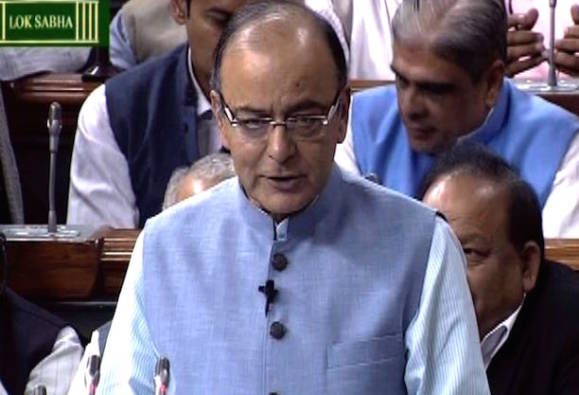
New announcements regarding health promotion scheme welcome, critical to see how money would be spent
Welcoming the new announcements on proposals in the Union Budget 2016-17 relating to improving the health of populations in India presented by the Union Finance Minister, Mr. Arun Jaitley in the floor of parliament today, Dr. Vivekanand Jha, Executive Director of The George Institute for Global Health, India, and a Professor of Nephrology at the Postgraduate Institute of Medical Education and Research, Chandigarh said the increased coverage on health promotion scheme are welcome but fall short of what would be adequate for coverage for treatment of major illnesses.
“We await the details of how this amount is to be spent – whether it is only for coverage of cost of illnesses, or will it be spent on promoting health or bolstering the primary health sector to keep people healthier and out of hospital,” he said, adding: “We hope part of this will be spent on using smart methods to improve healthcare delivery using smart technologies and health manpower restructuring.”
Arguing that provision of dialysis has long been a benchmark for the willingness of governments around the world to provide healthcare to its populations, Dr. Jha said it was interesting that the government has announced a National Dialysis Scheme. “Once again – the devil will be in the details, for it is easy to spend a lot of money on dialysis for a relatively small proportion of the population. Lessons learnt from implementation in other countries should be used to develop replicable schemes for delivery of good quality dialysis in an ethical manner,” he said
Warning that there was a danger of marketplace ethics drowning quality, Dr. Jha said the scheme should be supported by a quality assurance system to be developed in consultation with professional societies and national and international organizations. “Quality should not be sacrificed at the altar of cost,” he argued.
According to him, While developing hemodialysis units in district towns is welcome – due attention must be given to peritoneal dialysis – which can be provided to large numbers at lower price, to even those living in remote areas at home,do not require setting up of expensive infrastructure like dialysis units and water treatment systems, and are likely to be more environment friendly. “Most nations where dialysis is funded by the governments develop their program around peritoneal dialysis,” he pointed out.
Finally, noting that dialysis is expensive, he hoped that the government will lay equal, if not more, emphasis on prevention of kidney disease, as lots of patients with early stage kidney disease die of cardiovascular causes even before they develop total kidney failure.
Dr. Jha hoped that the move to reduce import duty will include peritoneal dialysis consumables.
The move to provide affordable medicines is long overdue and most welcome. We however need a system of making sure the drug inventory and use is monitored, the generic and bio-similar industry is better governed.
Appealing to the government to provide incentives to those who can develop innovative solutions, Dr. Jha hoped that the government under this scheme will foster development of fixed drug combinations for management of chronic diseases, and promote development of antimicrobial stewardship program.
According to him, what would have been encouraging is to hear a more explicit commitment to develop primary healthcare and developing a robust framework for that. “We do hope that the government will announce details for making National Health Mission a priority and increasing spending in this area,” he said.

